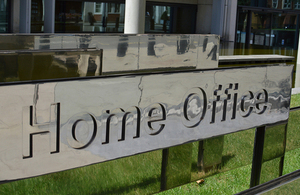Changes to the Immigration Rules
The government has announced today, changes to the Immigration Rules affecting a number of categories.

The government is demonstrating its commitment to providing protection and support to the most vulnerable people while at the same time encouraging highly talented students and workers to the UK has been demonstrated in Immigration Rule changes laid today.
A significant change to be outlined in the Rules is the creation of a new form of leave for children under section 67 of the Immigration Act 2016 (the Dubs amendment). This will ensure that those children who do not qualify for refugee or humanitarian protection leave will still be able to remain in the UK long term. Those who qualify for this new form of leave will be able to study, work, access public funds and healthcare and apply for settlement after 5 years, without paying a fee. The change underlines the government’s commitment to fulfil its obligation to the Dubs children and the spirit of the legislation.
The Rules also bring into effect the announcement made by the Home Secretary in May that Afghan interpreters and their family members who have relocated to the UK can apply for settlement after 5 years’ residence. This will benefit over 1,100 individuals. It additionally implements plans to expand the ex-gratia redundancy scheme to recognise and honour the service of those made redundant before 19 December 2012, as announced by the Defence Secretary on 11 June. This will mean up to 40 additional Afghan interpreters and their family members will be eligible to relocate to the UK.
In addition to the plans to remove doctors and nurses from the Tier 2 visa cap there are a number of further changes to the UK’s visa routes. This includes opening up the exceptional talent visa to include leading fashion designers. They will have their application assessed by the British Fashion Council under the endorsement remit of Arts Council England (ACE), one of the existing 5 endorsing bodies on that route.
The route has also been opened up to a wider pool of TV and film applicants, under the remit of ACE, thanks to changes to the list of eligible industry awards and how recently applicants must have won or been nominated for them. The route already covers leading talent in the fields of science, humanities, engineering, medicine, digital technology or the arts and is open to 2,000 people a year.
To make it easier for students to come and study in the UK’s world-leading education sector, the Home Office has expanded the list of countries from which students will be able to benefit from a streamlined application process. Students from an additional 11 countries, including China, will be able to provide a reduced level of documentation when applying for their Tier 4 visa. All students from these countries still need to meet all requirements under Tier 4 and UK Visas and Immigration reserves the right to request this evidence in full and will do so for a random sample of applications.
Immigration Minister Caroline Nokes said:
Today’s changes show that we are able to adapt to meet the demands of our frontline services and ensure we are able to attract people who can bring real benefits to our creative industries.
At the same time we are confirming our commitment to those children in need with our ongoing support while demonstrating our recognition for people who have risked their lives by serving with our armed forces.
Other changes to the Rules include:
-
A new settlement category for Turkish business people, workers and their families who are in the UK under the EU-Turkey European Communities Association Agreement (ECAA). This means that Turkish workers and business people will be able to settle in the UK after 5 years as either an ECAA business person or ECAA worker (or equivalent points based system routes), as long as the most recent period of leave was under the ECAA. This category was first announced in March 2018 after an Upper Tribunal ruling meant the previous route had to close.
-
Electronic Visa Waiver (EVW) holders will be able to present their EVW in a digital format for the first time, allowing for a smoother journey to the UK. This means passengers will be permitted to present their EVW in an electronic or printed format to carriers upon departure and a Border Force Officer upon arrival.
More information is available in the statement of changes. The changes will come into effect on 6 July 2018.